They’re not just locks that secure intruders, they’re about marrying safety with sophistication. The outdated wooden or metal doors don’t require such refinement, but glass doors need solutions that are subtle, gentle on the material, and classy enough to keep up with their look. From slim magnetic systems that are integrated into the frame to digital door locks that recognize your phone, today’s options go far beyond the standard. Each type of lock is uniquely designed for a specific lifestyle, room, or level of security. This is where the world of Types of Glass Door Locks comes into play. Whether you’re a house owner, an entrepreneur, or any other inquisitive person interested in knowing about security solutions, you’ll find useful information to help you choose the best lock for your glass door.
By the end of this blog, you will have the precise information on how to secure your glass doors without losing their beauty.
Why Glass Door Locks Are Different?
Glass doors differ from metal or wood doors in that they possess their own unique set of challenges and marvels. Their modern, transparent look is aesthetically pleasing, but means that there’s a very different approach to security.
Because everything is transparent, locks must be functional without being intrusive to maintain a clean appearance. Sometimes traditional locks don’t work because of:
- Drilling limitations: Most conventional locks require deep drilling, weakening glass panels’ integrity.
- Weight discrepancy: Glass doors are lighter and not able to support the same mechanisms, so standard locks are what solid doors are for.
- Aesthetic appeal: Crude locks look bulky and cumbersome on sleek glass surfaces.
In this case you will need an expert lock. Glass door locks are specifically designed to balance looks with security. They use clamp or patch fittings instead of boring through the entire door.
Most are magnetic or sliding systems that protect the glass from stress. More expensive models even integrate smart technology, offering convenience through keyless entry and remote control without compromising door aesthetics. Here is difference between glass doors and traditional ones:
| Features | Traditional locks | Glass door locks |
| Material Fit | Suitable for solid wood | Designed for breakable glass |
| Installation | Requires extensive drilling | Light drilling or clamp-on |
| Aesthetic Impact | Typically, bulky and noticeable | Thin and discreet |
| Security Level | High but not glass compatible | Balances fragility & style |
| Modern Options | Not very smart compatible | Magnetic & smart technology incorporated |
Types of Door Locks
Types of Glass Door Locks
Not every glass door is the same and neither are its locks. A lock that is ideal for a sliding patio door won’t necessarily work on a frameless office entrance. Security requirements are important to consider.
A retail store featuring high-end products requires stronger locks than a balcony of a resident house. Style preference is also another option to check. As the glass doors are chosen for aesthetic reasons, most of the locks also need to be discrete and fashionable.
Different types of glass door locks are strong and weak at their own place, which makes it necessary to select the lock type depending on the use and ambiance of the door.
Now let’s take a look at the most widely used and effective Types of Glass Door Locks separately so that you can pick the most suitable one for your area.
Mortise Locks
A mortise lock is perhaps the most reliable door locking mechanism for glass doors. From an installation perspective, mortise locks require a more complex fitting process.
A precise cut-out in glass or the frame is needed to hold the lock body. For this reason, installation is typically carried out by professionals and not as DIY. Many designs can also be paired with cylinders for key access or substituted with electronic units for increased functionality. It is best suited for:
- Mortise locks are extremely versatile and best suited
- Sliding glass doors Offering a secure but easy lock for patio or balcony doors.
- French glass doors: Bringing style and security without overpowering the beautiful design.
| Pros | Cons |
| Extremely hard-wearing and durable | More complicated fitting than other types of locks |
| Provides excellent security with heavy-duty action | May require professional help for fitting |
| Gets flush with the door, retaining appearance | Slightly more expensive than other less complex lock types |
Keyless or Electronic Glass Door Locks
With the age of smart living, keyless or electronic glass door locks have become the status symbol of convenience and technology. Best Suited For:
- New glass doors for new homes
- Commercial property with frequent access
- Smart homes with high priority integration of digital systems
| Pros | Cons |
| Keyless convenience—farewell lost keys | Power or battery dependence (risk of failure) |
| Biometric or PIN-based entry for secure personalization | Technical installation and maintenance needs |
| Smartphone control of the app | Higher initial cost compared to mechanical locks |
| Delivers a shiny, high-tech appearance to glass doors | Potential for cybersecurity problems if not installed securely |

Hook and Latch Locks
Hook and latch locks are among the most common and easy-to-operate locking systems for glass doors. The action is centered on a hook-shaped component that extends out from the lock and safely latches into a fixed catch or strike plate on the frame.
The installation is straightforward, typically needing basic tools and minimal adjustment to the frame or glass. Simple as it is, hook and latch locks represent a practical and inexpensive means of locking glass doors without sacrificing usability.

It is best suited for patio doors where every day frequent use requires an uncomplicated locking system. Check out the pros and cons chart of this type of glass door:
| Pros | Cons |
| Simple mechanism that is easy to operate | Gives less security than high-tech locks |
| Simple and inexpensive installation | Still vulnerable to forced opening with tools |
| Ideal for light to medium security needs | Doesn’t work in high-security areas |
| Minimal effect on glass door looks | Doesn’t accommodate smart integration features |
Cylinder Locks
Cylinder locks are one of the most widely used and renowned locks in the world. In glass doors, they are usually installed when the door is bordered by metal. The lock itself is a cylindrical mechanism with a keyway, in which a standard key is inserted to operate the lock.
Their commonality is due to simplicity and identifiability. It is best suited for Ordinary glass doors with metal frames in private homes, offices, or shopping outlets.

Places where an old and inexpensive lock is adequate. Consider the pros and cons of cylinder locks:
| Pros | Cons |
| Easy to use, user-friendly for all | Might be picked or bumped with simple instruments |
| Readily available and cheap | Offers fewer advanced security measures |
| Compatible with most frame glass doors | Not compatible with frameless glass doors |
| Quickly rekeyed or replaced | Might not fit exactly with contemporary, frameless designs |
In short, cylinder locks are an easy, hassle-free option for framed glass doors. They are easy to use and quite ubiquitous, although perhaps they lack the high-tech security that high-risk or high-end environments need.
Push Button Locks
It is applied to glass entry doors in offices, showrooms, or internal partitions. Because of their minimalist design, push button locks are easy to use by individuals of all ages and require minimal effort in installation.
They also preserve the sleek look of the glass as the mechanism does not have to be large and conspicuous. It is best suited for:
- Interior glass doors, i.e., office partitions or conference rooms.
- Low usage traffic doors where high-level security is not a prime concern.
- Situation where rapid convenience and ease of use are of more importance than high-security aspects.
| Pros | Cons |
| Simpler and faster to use | no keys required doesn’t have high-end security features |
| Simple to install in most glass doors | not as ideal for exterior doors or high-traffic areas |
| Maintains the attractiveness of glass doors | may wear out faster with extensive use |
| Ideal for low-risk scenarios | limited only to basic locking function |
In essence, push button locks are best suited for ease and convenience-oriented applications. They offer fast access and less trouble, but must be avoided for high-security use or exterior glass doors.
Sliding Door Locks
As you know sliding door locks are suitable for sliding patio doors in homes or apartments. Balcony doors where ease of access is required but standard locks will not fit into the sliding system.

Home or light commercial facilities where reasonable security is sufficient for having sliding door locks. Here are pros and cons of these types of glass door locks:
| Pros | Cons |
| Easy to install, mounts right above sliding doors | May be less secure if unsupported |
| Designed for hassle-free sliding operation | May be bypassed if glass or track is damaged |
| Ideal for home balconies or patios | Fewer high-end features than smart locks |
| Slender profile that doesn’t sacrifice style | Not suitable for high-security use |
Sliding door locks are generally an easy solution for homes or bedrooms with sliding glass doors. They are easy to use while retaining the smooth sliding attribute, though reinforcement would be required for added security.
Deadbolt Locks for Glass Doors
Deadbolts are available key-operated, thumb turn, or even as part of electronic systems in contemporary houses. They are most suitable where safety is the top priority, and they usually are the primary locking device with other locks. They are best suited for:
- Glass doors where additional security is needed, like access to outside of buildings, commercial buildings, or valuable commercial retail areas.
- Homes or offices where added protection is required.
- Situation where the door might be vulnerable to forced opening.
Generally speaking, deadbolt locks are the go-to choice for glass doors where security should not be compromised. Although more challenging to install, the added security they provide is worth it to use in home and business situations as well.
| Pros | Cons |
| Provides first-class security, more challenging to force or tamper with | Installation is more complex and may require it to be performed by a professional |
| Ideal to be used for external or high-security doors | Title is typically more expensive than standard lock styles |
| Can be installed on existing locks to provide extra protection | Perhaps needs to be adapted to door or frame |
| Provides a sense of assurance and security | Thicker build compared to minimalist locks |
Smart Locks for Glass Doors
They are slender and cosmetically incorporated with glass doors, typically with slender finishes that do not mar the door’s beauty. Certain of the newer models also have remote access, activity monitoring, and compatibility with home automation software, allowing you to monitor and control access remotely. Best Suited For:
- Modern residential houses with frameless or minimalist glass doors
- Commercial offices where frequent access requires flexibility and electronic management
| Pros | Cons |
| Keyless convenience, no keys needed | Requires electricity or batteries |
| Can use biometric or app-based access for stricter control | Potential technical installation or diagnostics required |
| Provides remote monitoring and control | Greater initial expense than traditional locks |
| Mirrors nicely with smart home systems | Potential cybersecurity problems if not properly secured |
Smart Lock Installation Service
Choosing the Right Glass Door Lock
In choosing the right types of glass door locks, you have to consider different factors. We will explain about these factors in the following:
Security Level
Determine how much protection your door needs. For exterior doors or high-traffic entrances, deadbolts or electronic locks may be ideal. For interior doors or low-risk entrances, hook and latch locks or push-button locks may suffice.
Door Type
The type of glass door directly impacts your choice:
- Sliding doors will generally work well with sliding door locks or hook mechanisms.
- French doors can accommodate mortise or cylinder locks.
- Bi-fold doors need small, flush-mount locks like mortise or patch locks.
Ease of Use
Consider who will be using the door. Keyless or electronic locking devices give ease of use in the form of frequent use, while traditional locks would involve some extra work but can be uncomplicated and trustworthy.
Aesthetic Preferences
Glass doors are chosen for their appearance, so the lock should look good. Slimline locks, push button systems, or hidden mortise locks have a clean look, but heavier locks may be more suited for industrial usage.
Additional Security Tips for Glass Doors
As much as choosing the right lock is critical, glass doors are supplemented by extra security layers to enhance security as much as possible. Timely replacement is very vital.
Replace damaged parts in a timely fashion to ensure maximum safety. There are some helpful tips to enhance security without compromising aesthetics:
- Window security film Prevents easily shattering glass
- Security cameras rule entry points and discourages thieves
- Reinforced door frame reduces vulnerability to forced entry
- Secondary locks surprise potential breakers
- Routine maintenance smoothes locks to work reliably
Lock the Door Frame and Lock
Robust frames ensure that metal or wood frames are reinforced to withstand pressure or tampering. Weak frames are always the easiest point of attack, regardless of the type of lock.
Reinforced locks employ your primary lock in combination with auxiliary devices, such as deadbolts, latch guards, or other hook locks, to increase effectiveness against forced entry.

Conclusion
In our guide, we covered the most popular types of glass door locks like mortise locks for durability and stealthy design, Hook and Latch Locks for simplicity and affordability, Cylinder Locks for old-school key-based security, Push Button Locks for convenient internal use, Sliding Door Locks for smooth operation on patio or balcony doors, Deadbolt Locks for maximum security needs, Smart/Keyless Locks for modern, tech-savvy settings.
We also highlighted other security suggestions, such as bracing frames, applying security film, installing cameras, and performing periodic maintenance, small steps that make a big difference in keeping your glass doors secure.
Convenient, high-tech, or maximum security, there’s a lock to meet your needs. For internal doors, push buttons or keyless locks are ideal. For patio or sliding doors, sliding door locks or mortise locks are a great combination of security and ease.
It comes to purchasing quality glass door locks, Simpled provides a broad selection of trustworthy, fashionable, and safe solutions. From high-tech smart locks to robust mortise systems, Simpled ensures that it is simple to increase the security and sophistication of your glass doors.
Don’t settle on style or security, select the ideal glass door lock today and enjoy peace of mind with each access.
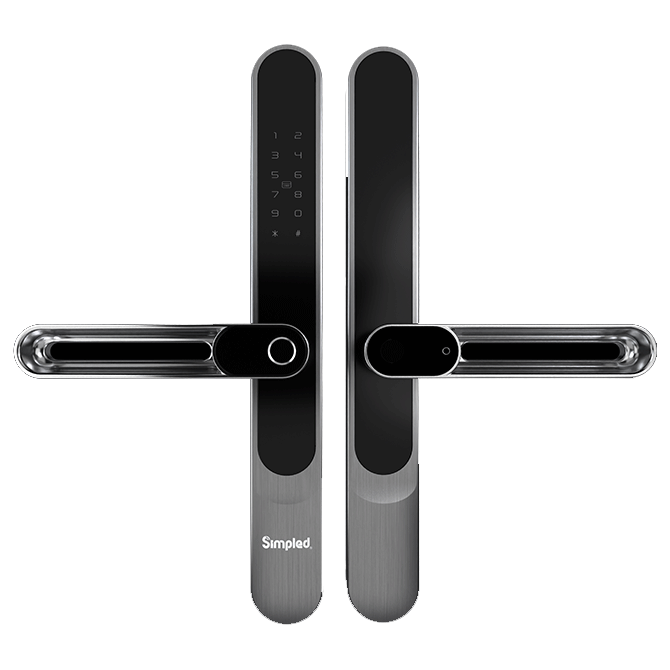
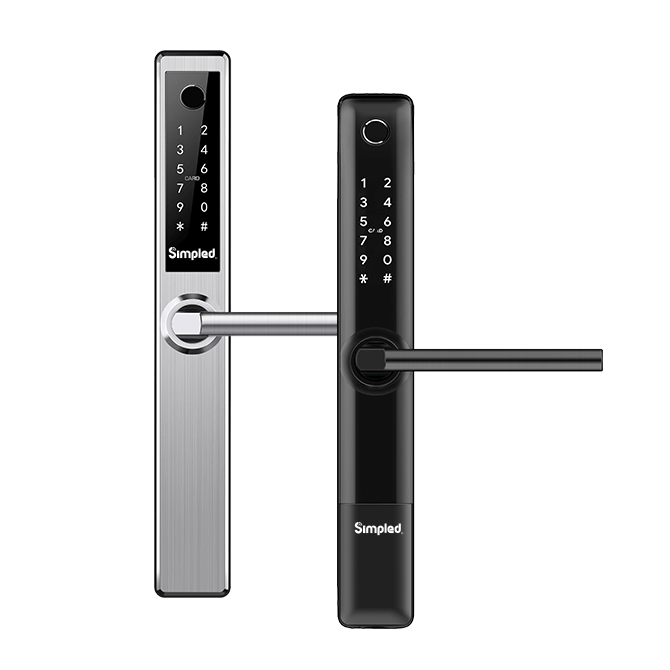


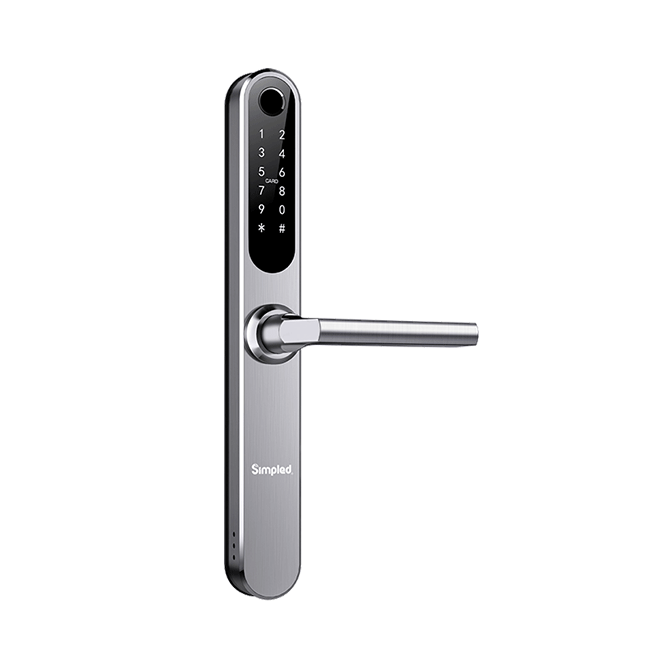
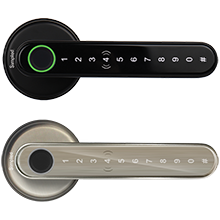
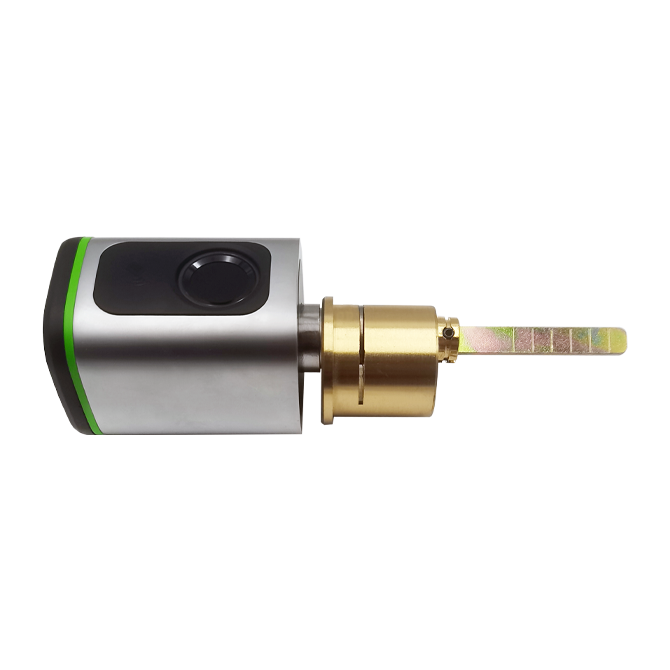
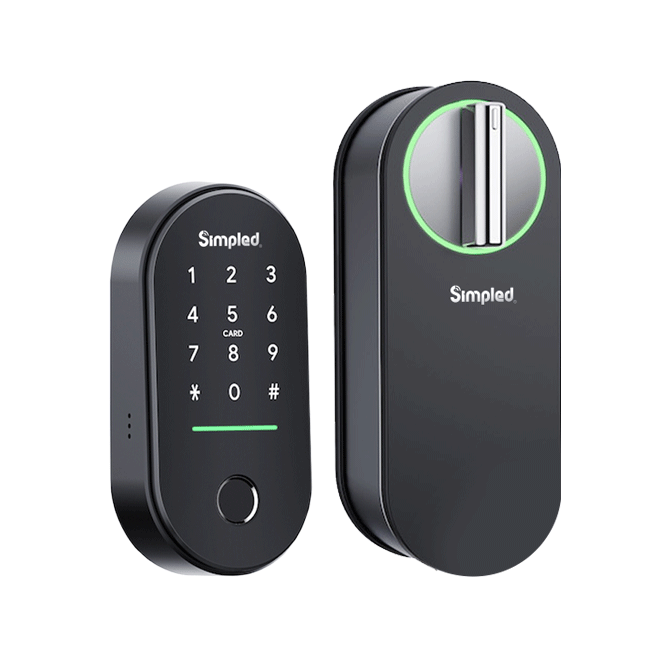
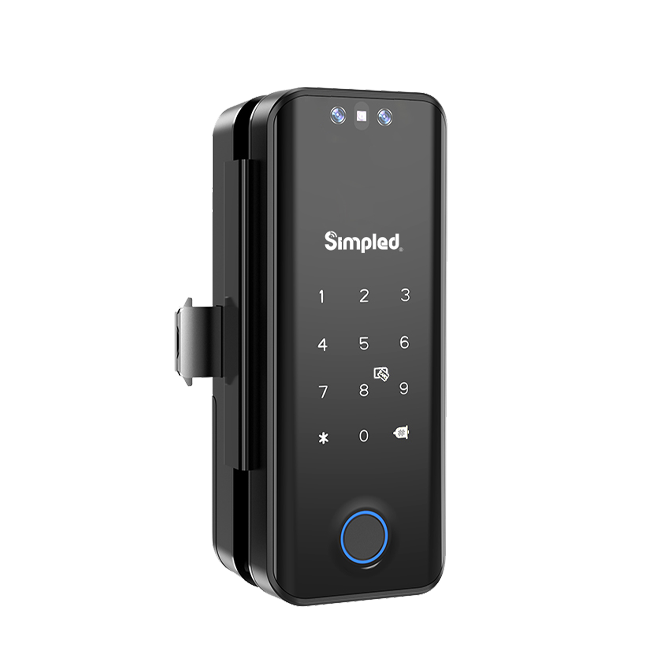

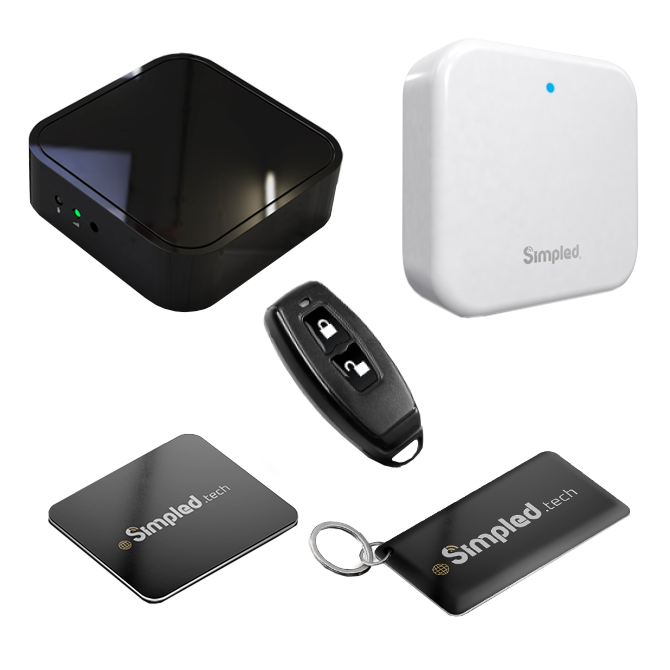


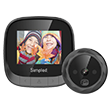
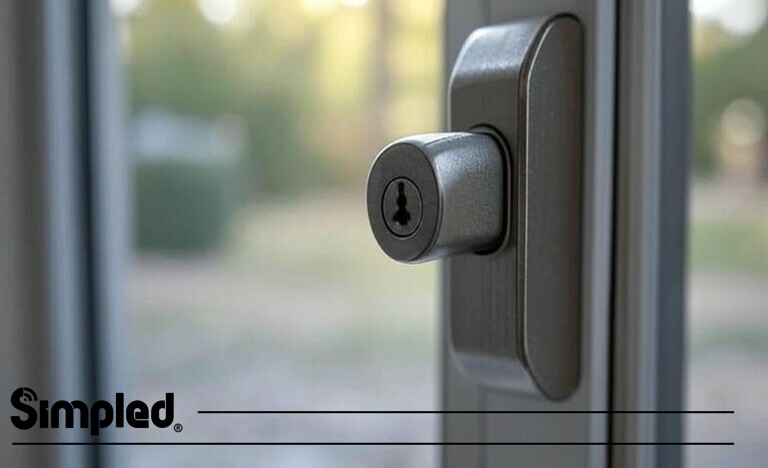


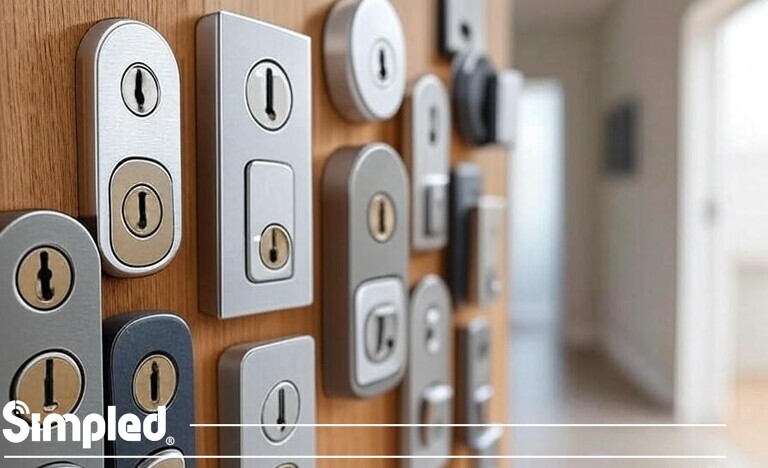
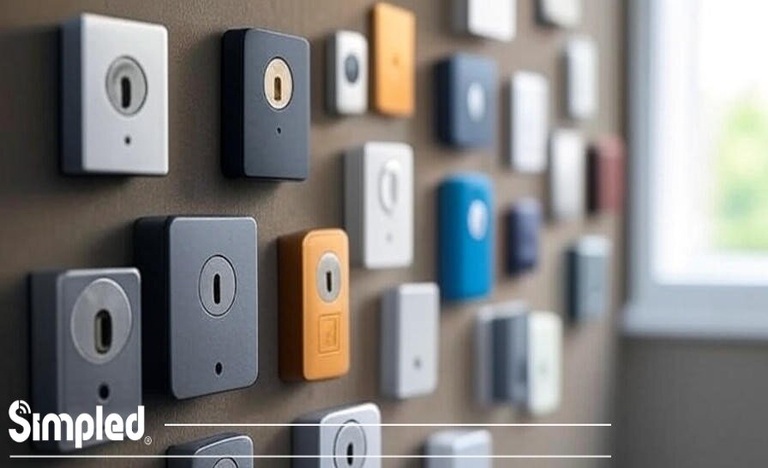
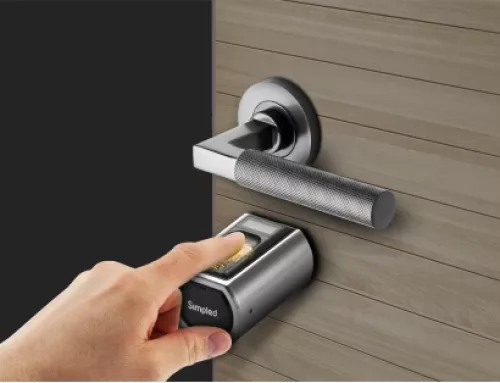
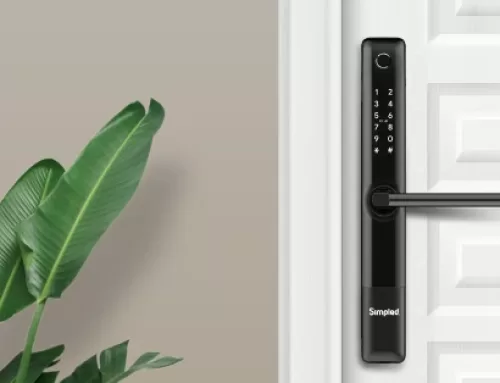
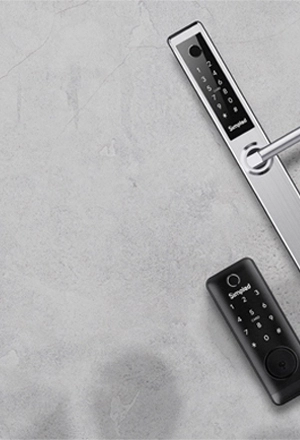
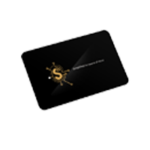

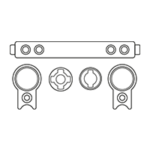
Leave A Comment